|
When the COVID-19 pandemic began and so much seemed outside of my control, I turned to prayer as a source of comfort, nourishment, and stability. Favorite Catholic podcasts, powerful homilies, Gospel-inspired music, Scripture reading, and devotions like the Rosary kept me grounded in a higher reality than the confusing, dark, and humbling one I faced. Perhaps I felt the need to overcompensate in a time when I couldn’t physically receive the Eucharist. The lack of physical Communion meant I searched for spiritual, mental, and emotional communion with the Lord in other ways I found fruitful. In this way, times of trial can bear much fruit—suffering sharpens our eyes to the eternal and true. It is sobering. Surrendered to God, suffering can be the most direct path of conversion and redemption. As the pandemic continued and I was able to adjust to my new “normal,” my sense of emergency slowly began to fade. I found ways to be comfortable and to continue meeting needs like friendship, worship, and rest. No, everything was not as it had been. Life was still a shadow of its former glory. And yet, I had found ways to cope. As this trajectory continues with the reopening of society in many ways, I have begrudgingly found that my deep prayer life has slowly faded. Becoming more of a checklist than a time of renewal, my prayer time is filled with distraction and noise. I’ve come to realize that I would rather fill my time with the noise—albeit good noise—of a Catholic podcast or homily instead of turning everything off and filling my time with God Himself. I’m more comfortable hearing others talk about God and their spiritual insights than talking to God. I’m also more comfortable talking AT God than WITH Him. I have a lot to say, but am not spending time listening or receiving. Finally, once I do settle down to pray, my tasks, chores, and rambling thoughts bombard me. My prayer time is filled with noise and distraction. Why is it easier for me to scroll through a newsfeed of beautiful images and consumer goods than to thumb through my Rosary meditatively? Why is it easier to respond at all moments to the latest texts in a never-ending group thread than it is to respond at all moments to the promptings of the Holy Spirit? Why is my heart more easily captured by the words of the media than by the Word of God? For perhaps the millionth time, I must face again a thorn in my side that prevents me from greater holiness: noise. “Noise, the grand dynamism, the audible expression of all that is exultant, ruthless, and virile—Noise which alone defends us from silly qualms, despairing scruples, and impossible desires,” says the demon Screwtape in C.S. Lewis’ classic, The Screwtape Letters. He continues, “We will make the whole universe a noise in the end. We have already made great strides in this direction as regards the Earth. The melodies and silences of Heaven will be shouted down in the end.” Lately in my life, it seems like Screwtape and his friends are succeeding. I’m having trouble hearing the melodies of Heaven amidst all the noise. And can’t we all admit to knowing this deep down—that much of our lives is an endless stream of noise and distraction threatening to drown out the still small voice inside? I reflect on these things once again while reading a powerful book and meeting virtually with other women--This Present Paradise: A Spiritual Journey with St. Elizabeth of the Trinity. Elizabeth, through the author Claire Dwyer, is shaking me from my complacency and passing through the distractions to help resurrect my heart. This young French Carmelite nun who lived over a hundred years ago mastered the interior life of prayer and encourages all to do the same—regardless of their vocation in life. I know I am called to more than what I’m filling myself up with; an hour of scrolling through items on sale or watching a home renovation show will never compare to fifteen minutes of virtual Adoration or a few decades of the Rosary. Any time consecrated to God is not returned unsanctified. In times of greater stability, comfort, or complacency, I’m also reminded of the Scripture passage about the wise virgins at the gate. We are called to fill our lanterns with oil as we await the Bridegroom so that we will be prepped and ready for His return. I have personally found that my preference for news feeds, shows, or internet browsing fills my lantern with something akin to water rather than oil, and so I am using this season of Ordinary Time to recommit to a quieter, more fruitful prayer life. Below are a few things I have found helpful for overcoming spiritual distraction and ensuring daily prayer:
As the world continues to reopen in ways that give us hope, I invite you to reflect on your prayer life throughout the pandemic months and set goals for yourself during this season of Ordinary Time. In the end, may we find that the melodies and silences of Heaven triumph over the noise of the world.
1 Comment
In 2020, when the COVID-19 pandemic was beginning in earnest, there were many questions about what would happen in the Catholic Church if people’s lives were upended in such profound ways. In many respects, we may not truly understand the ramifications of a worldwide change in perspective until we can look back at it. That being said, with “the return to normal,” the opening up of parishes, and the re-starting of activities have come questions about what we have learned from this pandemic experience. I think many of us re-learned that community and connection are important. The question that seems to be challenging folks is: Now that we can start to plan to meet in person, what should our parish activities look like? For the past two years, I have had the pleasure of doing Master’s work in Church Management at Villanova University. Most of my studies occurred during this pandemic and offered a unique perspective of what effective parishes and communities have done to respond to a sudden shift in the assumptions of what the Church in the United States looks and acts like. Most of the parishes that were able to weather the storm well were able to do so because they were intentional about what community is and should be. They did not assume that a parish had to be only the functions that happen within a city block or a singular location, but rather can have an online presence and remotely meet people where they are. I think of my friends and colleagues with young families or who have long commutes and the complications that our parishes can impose on people who would like to be involved, but cannot be due to the lives that they lead. Are we as church leaders imposing certain restrictions for the members of the parish to be able to build a community? As active Catholics, our job is to share the joy of the Gospel that we hopefully have experienced with others. The pandemic has proven that there is a desire for community and for Christ in people’s lives despite barriers. However, we as Catholics also need to acknowledge that if we “are now just going back to normal,” we are also going back to the normal of an older and smaller church. We need to see the pandemic not as a temporary event, but rather the opportunity that God has given us to think creatively and reflectively over the past year about what it means to be Catholic in the United States. Similarly, what is our hope for the future of the Catholic Church in the United States? If we do not think about these things, we risk becoming a closed community for only those who are already active members. There were many challenges during the pandemic, but there were opportunities to grow and learn for our Church as well. My hope is that we take the lessons that we have learned, both positive and negative, about what it means to be in a community and to be community leaders and apply those findings in healthy, creative ways going forward. For more resources on navigating COVID-19 as a community, please click here. Every year I ponder why we put such great importance on December 31st—why we celebrate the close of one year and herald in the new year with such fanfare. I never have really been one to make such a ‘to do’ about celebrating New Year’s. Isn’t it simply another day on the calendar, the turning over of a number? One day rides into the next on the 31st of December no differently than all the other days of the year. But we have made it a big holiday – a day to reminisce over the past 12 months and to celebrate the beginning of a fresh new calendar year – and we believe in all of its possibilities. Many of us recommit to our mission in life or to a specific goal. With the encouragement of others, we resolve to some greater aspirations and get all fired up about them! In our Christian walk, it is essential that we take stock of where we are and what we have done, as well as how we can make improvements, grow in holiness, love more deeply, and share the Gospel message more intentionally. We do not have to only do this examination and recommitment on New Year’s Eve: we are called to do this daily. A great time to do it is before we lay ourselves down to sleep. And then each morning, we can arise with the zeal to do our best, be our best in the new day we have been given. New Year’s Eve traditions are wonderful, but let us daily recall our actions and thoughts and celebrate the close of another day to be alive, to walk and talk as a joyful, purposeful child of the Savior, and then arise each morning to usher in a fresh new day to live and work and grow in our mission to build God’s kingdom on earth. About 3 months ago, as we were continuing to navigate life in this pandemic, I committed to participating in daily Mass with my husband in order to become a bolder Christian, a more loving wife, a more compassionate mother, a more diligent worker, and a more available servant to my neighbor. I honestly see great fruit in these areas because of receiving Jesus daily in the Word and in Sacrament. I have experienced added gifts of grace that help me become a better child of the Most High! During this time, I awoke every morning between 3:00 and 3:45am, just wide awake and raring to go! After a week of this happening, I realized that God wanted something of me. So now I read Scripture and have a nice quiet prayer time, while the rest of my household is asleep. I would not have been able to do this five years ago, or 10 or 20 or 30. I was in the trenches raising six kids and working and managing an extremely busy household! But grace abounds at this time in my life and it amazes me how good God is! This personal reflection, prayer, and evaluation are a day-by-day occurrence, not just practices that occur once a year at the turning of the clock to January 1st. I encourage each of you to enjoy your New Year’s Eve reflection and New Year’s Day celebration while also recognizing and committing to the importance of reflecting on what is past and committing to what is ahead as a daily activity. We are each here for a purpose. Together, with the graces God bestows, we have much to do to build His kingdom. So, one foot in front of the other, one sunrise and one sunset at a time, let us celebrate each day with the zeal of the first disciples – and God’s will most surely will be done on earth as it is in heaven! Happy New Year, happy new day! “God, examine me and know my heart, test me and know my concerns. Make sure that I am not on my way to ruin, and guide me on the road of eternity.” Psalm 139:23-24 Through the halfway point in the fall semester, most any college student could testify to the highs and lows of trying to learn in these trying times. From Internet issues, Zoom exams, and burnout, each class that goes smoothly is a little victory, but some days it is just so hard to focus on classes. My inner biochemistry major wishes that learning by osmosis was possible – a passive learning because our attention is drawn to so much distraction. On the other hand, even though it requires a little more active thought, I know there’ve been some highs so far this semester. Even with social distancing, I have made new friendships and renewed others. Since I serve as a Resident Assistant at my university, where we have just freshmen and RAs on campus, I have gotten to see freshmen build friendships, find their niche, and take on leadership positions in the campus community. Through my personal experience and seeing the freshmen on my campus, a word to describe the semester so far would be “perseverance.” For me, perseverance has been continuing along the path of learning despite the challenges and difficulties. I have worked to develop four actions into habits during this semester to help build perseverance:
Ultimately, I hope to continue building upon these four actions for the rest of the semester to help strengthen my perseverance and to experience more highs than lows from this abnormal time. To help motivate me to keep going day after day in classes, I wrote this quote above my desk: “Nothing great is ever achieved without much enduring” – St. Catherina of Siena For more resources to grow spiritually during the COVID-19 pandemic, please click here.
“Death and life are in the power of the tongue, and those who love it will eat its fruit.” Proverbs 18:21. The definition of the word “communication” from Webster’s dictionary is: “to share or impart information.” I look at this word and see a whole lot more. Com = come and commune = to communicate intimately. Communication can be defined as people coming together intimately to share information of all kinds. Coming together or communing is a very personal act, requiring the openness of individuals to both share information as well as receive it. This is where the very act of communicating becomes challenging. We are diverse as individuals and have a multitude of ways of perceiving what is communicated, as well as varying ways of imparting our ideas and information. When we speak to another, we do not just simply use words. We use tone, inflection, and body language. Because of all this, we can relay information in a positive or a negative manner. Keeping this in mind, it is essential to be very intentional and aware of how and what we communicate at all times. Ephesians 4:24 is plain in its instruction: “Do not let any unwholesome talk come out of your mouths, but only what is helpful for building others up according to their needs, that it may benefit those who listen.” As Christians, we want to always strive to build up and encourage with our communication. I’ve found that for communication to be successful, there have to be some ground rules. This requires that we be intentional people of prayer who ask for wisdom and understanding. Praying also helps us to be reverent, respectful, and open. Colossians 4:6 tells us “Let your conversation be always full of grace, seasoned with salt, so that you may know how to answer everyone.” This is a tall order for mere humans, which is precisely why we need God working in and with us. Our words can be blessings or weapons in any of our relationships. God calls us to love Him and our neighbor as ourselves – to serve in humility and love. Our speech has to align with this, the greatest commandment. As Proverbs 12:18 says, “The words of the reckless pierce like swords, but the tongue of the wise brings healing.” What we say and how we deliver it reveals the spiritual battle we are engaged in. Our purpose in speaking should always be for the good of the recipient. There are so many things we wish to impart to others in our daily lives: instructions, encouragement, advice, exhortation, expressions of love, thanks, concern, correction. The list is endless. However, a quote attributed to St. Francis of Assisi sums up communication in a beautiful and profound way: “preach the Gospel always, and if necessary, use words.” What that means is that our goal should be to impart all that Jesus taught us through acts of love and mercy, and when we have exhausted our actions, then use words. I realize it is necessary to speak for many important reasons, but it must always be done in respect of the dignity of the recipient, aware that they are a child of God and always desiring the best for them. Since this is a challenging task, we must seek the help of the Holy Spirit and also holy people who can assist us in learning the best manner of speaking to others in all types of circumstances. It is not something we are just born with the ability to do. It comes with prayerful guidance and lots of practice. James 1:26 reminds us “Those who consider themselves religious and yet do not keep a tight rein on their tongues deceive themselves and their religion is worthless.” Another element of communication is discerning when it is appropriate to speak and when to remain silent. I don’t mean ignoring another or refusing to talk. I mean weighing what you ‘feel’ or ‘want’ to say versus what is ‘right’ and ‘necessary’ to impart. “The heart of the righteous weighs its answers, but the mouth of the wicked gushes evil,” Proverbs 15:28 continues. This requires each of us to spend a good amount of time in quiet prayer each day in order to be in an open disposition to receive wisdom and understanding about what to communicate. From there, we must pray for the grace to ‘commune’ with the recipient of our information in a loving and Godly manner. When we nurture a consistent prayer life with the Lord, we experience peace that guards our minds and hearts. Because of our woundedness and fallen nature, the world and the devil’s designs, we struggle in this area and need the guidance of the Holy Spirit to be communicators that build up, encourage, and love through our words. In our fractured world, when people are attacking each other on all fronts about every issue imaginable, we as Christians need to be conduits of peace when we communicate. Praying for the desire to express love in everything we do will benefit us when we communicate and when we are receiving communication from others. We must grow in self-control and patience so that our communication will be positive, even in the toughest conversations. As Christians working to build the Kingdom of God, we must allow the love of Christ to flow out of us in all our actions and in every word we utter. We can come together with others and share information in many beautiful ways. God gave us voices for this. Let us always be in deep communion with God who loved us into being and calls us to be relational in order to share His love and build His kingdom on earth! Let Psalm 141:3 be our daily prayer: “Set a guard over my mouth Lord, keep watch over the door of my lips.” To read more about charitable communication and evangelization, we invite you to read Choosing to Believe in Another’s Best Intentions or Communicating Like Chrysostom: Growing Your Skills in Speaking for the New Evangelization. During my fifth year with D.C. United, the team brought in a nutrition specialist. The specialist gave his presentation and then looked toward a table in the middle of the locker room that held about 40 pill bottles of vitamins, supplements, mild pain relievers, gels, powders, and who knows what else. The nutritionist then walked over to the table, looked back to us, and said, “you know, if you just eat well you can throw all of these out. In fact, you’d be better off doing that.” He left the locker room five minutes later and never came back. For my first five years at DCU, I had been taking those vitamins and supplements at the recommendation of our strength and conditioning coaches and athletic trainers. Now a certified nutritionist deemed the whole thing a waste of time and had even said they could hinder our performance—I wondered what exactly to do. Who should I listen to? This memory has stayed with me because it matters a lot for an athlete what you do with your body. It matters how you train, eat, sleep, relax, and recover. You need to know what is helpful for your athletic development and what is unhelpful. I wanted to know if the pills and supplements helped me or hindered me. This all applies to athletic prudence in the natural realm. Prudence is the ability to judge rightly and act according to that knowledge. It is being able to think through things correctly and then make the right choice. Thus, athletic prudence is the ability to choose and act rightly in the realm of an athletic pursuit. We make decisions and then act based upon what we have concluded is actually helpful or unhelpful in relation to our goal. I would like to apply this same line of thinking to the virtue of prudence in the supernatural realm. We should be asking what is helpful or unhelpful in terms of our spiritual lives. Just like the nutritionist condemning our pill vault and making me wonder what was actually helpful for my soccer career, we should ask what in our lives helps or hinders us from going to God. In order for us to do this, of course, we must acknowledge that God is both our goal and a worthy (the most worthy!) goal at that. When I got to the height of my playing career I was devastatingly depressed for a very concentrated span of time (only several days). For months I pondered why I hit such a low point amidst more success than I had ever expected. Eventually, through the help of the Holy Spirit, I realized that God allowed me to feel the weight of my success without Him. It was an incredible grace—but also one that was difficult to really learn. Over time the truth that my soul was more important than my sport sunk in. I realized that much of what I had made my life about was, in the end, unhelpful for reaching the ultimate Goal who is God. I started applying my athletic thinking to my spiritual life. I started asking the right questions—is this helpful or unhelpful for my spiritual life? Should I be hanging out with this group of friends so much? Are my weekend habits really bringing joy to my life? Am I living as the person I want to be? Do I know who I want to be? These questions led—and continue to lead—me to Jesus, and I find myself needing to ask them again and again. Do the decisions I make help me become who I want to be? Or are my decisions hindering me from being that person? Athletic prudence helps athletes maximize their potential and use their God-given gifts to the best of their ability. This same principle can—and should—be applied to our spiritual lives. Are the decisions, actions, and principles that guide my life helpful? Are they leading me in a good direction? Prudence, says St. Thomas Aquinas, is the mother of the virtues. You cannot possess any virtue without the virtue of prudence because prudence is what enables us to recognize what is truly good (helpful) and then act according to that good. No athlete can become great apart from athletic prudence because athletic prudence enables the athlete to recognize and act upon what helps him or her become a good athlete. Far more important, however, is the realization that no person can become who they were created to be apart from supernatural prudence. It is not possible to follow Christ without first asking yourself what exactly it is you’re already following—what is it that shapes your decisions? It may be a desire for comfort, power, status, honor, wealth, success, popularity, or any number of things. But they all fall short. To be prudent you must know the end goal. You cannot attain the virtue of prudence in the whole of life without knowing that “it is Jesus in fact that you seek when you dream of happiness.”  Taylor Kemp is an instructor for the Denver Catholic Biblical School as part of the St. John Vianney Seminary Lay Division in the Archdiocese of Denver. He is a former professional soccer player, amassing over 100 appearances over six-years in Major League Soccer (MLS) for D.C. United, and playing for both the youth and full United States Men’s National Team. Taylor holds an MA in Theology from the Augustine Institute and BS in Business Management from the University of Maryland, College Park. The month of September is ripe with themes of renewal. Schools begin a new academic year. Some businesses start a new fiscal year. The season of autumn is bright with arboreal colors as some trees begin to turn dormant. Fields and gardens are harvested.
Those of us with yards know now is also the time to prepare and reseed our lawns for new grass to grow. For many, it’s a labor of love to cultivate the land. First the land needs clearing. Rocky soil demands aeration. Soil testing will help with fertilizing. And getting the right seed is critical! Furthermore, once planted, the new seed must be constantly watered, watched, and protected from harsh elements and nefarious agents. Is there a lesson from all this? Yes, great results require great effort, but we are also reminded of the parables of the sower and the weeds (Matthew 13:1-30). What I always liked about these parables was that our Lord Himself explains them so clearly: the Word of God is given to each of us; how it takes root is up to us. The seeds in the parable represent the deposit of faith we have each been entrusted to grow, nourish, and protect as baptized Christians. For those of us with children, we are especially aware of the great gift and responsibility of entrusting the Faith to our descendants. So precious and critical is this sharing that the Church urges parents to have their children baptized without delay. During the Rite of Baptism for an infant, the priest or deacon says to the parents: You have asked to have your child baptized. In doing so you are accepting the responsibility of training him (her) in the practice of the faith. It will be your duty to bring him (her) up to keep God's commandments as Christ taught us, by loving God and our neighbor. Do you clearly understand what you are undertaking? As is the case with any landscaping, the work of spiritual cultivation cannot be underestimated or haphazard. Raising a child in the Faith begins and is centered on the life at home. The environment of faith is so much more than memorizing Scripture or parts of the Catechism; the Faith must be lived! A family that prays together, goes to Mass regularly, is firm in morality and pursuing virtue, and encourages service and charity takes seriously the charge given at Baptism. The deposit of faith is planted at the immersion and anointing of the child during the rites of the sacrament; the family then works and tends to and cares for the germination and growth of this divine inspiration. As good seed sprouts among weeds, so too will the child: he or she will encounter the ways of the world that are ignorant of God; he or she will be tempted by sin; he or she may wander as a lost sheep, though the identity claimed at Baptism never disappears. As baptized believers, do we understand and appreciate what has been given to us? Do we help cultivate our spiritual lives in a way that fosters growth and true life? Pope Francis has urged us to remember and celebrate our baptism date: To forget our baptism means to expose ourselves to the risk of losing our memory of what the Lord has done in us. We risk ending up considering it only as something that happened in the past, and not the Sacrament in which we became new creatures and were clothed with Christ, made part of the relationship of Jesus with God the Father. Thanks to Baptism, we are also able to forgive and love those who offend us and do us harm; we are able to recognize in the last and in the poor the face of the Lord who visits us and is close to us. In short, more than a sociological moment that inscribes our name in the parish register, the day of our baptism constitutes a commitment and the identity card of the believer. The Sacrament of Baptism continues to sustain us through life: we are children of the Most High God! We may go through periods of spiritual drought or darkness, but we can find refreshment and renewal by attending Holy Mass, washing away sin through repentant confessions, and sustaining lives of prayer, faith, hope, and love. Then, having known the fruits of labor initiated by our parents, we can indeed be drawn up as part of the Lord’s bountiful harvest as He Himself has planted: “It [is] very good.” Shifts in routines have a way of forcing us to reevaluate the purpose of our lives. When shaken from complacency, we start to ask questions of greater value: how do I spend my time, and with whom? What brought me joy today? What’s the purpose of my life? Where do I find meaning? As we continue to press onward in the midst of this global pandemic, I find myself asking these questions again and again. After prayer and reflection, I’ve come to realize I’ve worn many “masks,” and it took wearing a physical one to reveal them to myself. Prior to COVID-19, my work, my independence, my family, my social life, my community, my outings—these things and others gave my life meaning. They were my security blankets that helped me feel secure and often distracted me from some of life’s greater questions. None of these things are bad in themselves. All are good and fundamentally human. But, where our humanity often fails is in how much importance we give these temporal things. Does our occupation or social status or friend count lull us into a false sense of security or complacency? Do they make us feel powerful, independent, successful? Do they, in and of themselves, give our lives meaning? When I felt stressed or bored or unhappy prior to COVID-19, I could get a change of scenery at a museum or coffee shop. I could go to a store and buy something small to make my house more beautiful. I could go on a date with my husband or spend time with a friend. Many of these things were taken for granted, but as they become harder to accomplish or require much more intentionality and legwork, I’ve had to become creative in self-care and honest about where I find meaning in my life. First of all, I’ve had to sit longer with my feelings and allow myself to deeply feel my emotions. At various points throughout the pandemic, I’ve felt sad, anxious, frustrated, or lonely. Recognizing these feelings as legitimate and naming them has enabled me to better process what I’m going through and revealed to me what’s most meaningful. Many distractions have quieted down and enabled me to reflect on my life and mission. Who am I when I am not bouncing around from one mom group to the next? Who am I when I cannot organize and host events or gatherings? Who am I when I can rarely go to a store or go to get groceries? I am many things: a wife, a mother, a daughter, a writer, a sister, a friend. But most importantly, I am a Christian—a beloved daughter of God. When so many good and beautiful things that I relied on for purpose are rendered skeletons, I’ve had to relearn to rest in this true identity. I’ve found that God is asking me to place the purpose and meaning of my life not in these temporal things, but in his hands alone. I am not worthy of his salvation because of my degrees, my writing, my work, my friends, my connections, or my home. I am worthy of his salvation because he made me. Because I am his. Because he looked at me and said, “It is good” (cf Gen 1:31). What is much harder than the initial shock of any given change is often not the change itself, but the continued life thereafter. I find it much more difficult to persevere. Pressing on in what can seem endless and mundane seems overwhelming. For many of us, getting out of bed may be the biggest achievement of the day. I have to take my life and my new reality day by day. And I’ve noticed how this correlates to the journey of sanctity. A moment of conversion or change is just the beginning—a sustained life of faith, lived and chosen in each moment of each day, is the stuff of saints. It is the quiet, hidden path—the one Mary lived so long and so well—one of seeming insignificance or ordinariness that ultimately can mean everything. This time of uncertainty, lived with charity and faith, can be our foundation for holiness. As human beings, we long to be fully known and loved. These are our greatest desires. But we walk along with invisible masks that obscure our dignity, often preferring wearing them than to being seen face to face. We try to justify God’s love, or earn it, or excuse it, or dismiss it. What I’m learning more deeply as a result of this pandemic is that I am loved in spite of all these things. I am loved regardless of who I know, how full my schedule is, what I own, how successful I am. As I stay home yet another day, sustaining the life of a small but beautiful family and cultivating a domestic church, I am reminded that this--this is worthy and sanctifying. My Mount Tabor can be my own home. And I can be transfigured. During this time of wearing a physical mask to keep ourselves and others safe, I invite you to reflect on the invisible masks that you may be hiding behind. Where do you find meaning? What makes you feel secure? Where do you turn in times of hardship or suffering? During this season, may you have the courage to allow yourself to meet Christ’s gaze face-to-face. If you enjoyed this post, we invite you to read “New Normal: Adapting to Life During COVID-19 and The Grace to Suffer Well: Persevering During COVID-19” As a child, I played a favorite game with my friends called “follow the leader” where everyone did exactly as the name suggests – followed the leader. If you didn’t do what the leader did you would be eliminated from the game. This game correlates to the Christian life: when we follow Jesus and do what He did, we reach our heavenly destination. We are wise to remember and heed Matthew 18:3-4: “Unless you become like children, you will not enter the Kingdom of heaven. Whoever becomes humble like this child is the greatest in the Kingdom of heaven.” How important it is as an adult Christian to always have the willing mindset of a child – to follow the leader with joyful expectation and simple trust. This reminds me of a remarkable event in my life that illustrates this concept. Several years ago, when our four youngest children were still living at home, we embarked on one of our family camping vacations. Having a large family, we had chosen camping as a way to enjoy a vacation together while on a budget. It removed all the distractions of our life of modern conveniences and afforded us time in the great outdoors to relax and build memories. This particular adventure took us to Cloudland Canyon State Park on Lookout Mountain, on the border of Georgia and Tennessee, a glorious place high in the mountains with astounding stargazing at night and amazing hiking trails during the day. One day we chose to traverse the Waterfalls Trail. The sign at the trailhead read “Steep grade ahead, use caution. Stay on marked path.” That should have been my moment of truth, my opportunity to bail and choose to sit on a bench and enjoy the 1780 ft vista and await my family’s return. But I ignored the queasiness in my stomach and forged ahead with them as they vivaciously marched down the canyon on a slim, winding trail. My stomach began to ride higher into my chest, my breathing was becoming fast and bordering on gasping and my feet were becoming heavy and unsure on the many twists and turns. After we passed under an enormous rock overhang, my body halted and I literally could not take another step. I was paralyzed with fear. Did I forget to mention, I’ve suffered from overwhelming fear of heights ever since I was a teenager? It was alive and acutely crippling on this day. As I watched my children bounding ahead and walking precariously near the rim of the steep trail, the fear gripped me to the point of panic. My husband kept telling me to look ahead, not down, and to follow his footsteps so that I would be safe and secure. The more I thought about moving forward, the stiffer I became. Moving at all in this way was sure to make me more apt to stumble. On my own steam, I could not go any further. I was at an impasse. With wisdom and child-like trust, my husband gathered our children all around me and asked each of them to lay their hands on me and to pray for all fear to cease so that I could be free to walk with joy and confidence. They did not want to leave me behind or to turn around and abandon the hike to the waterfalls. After several minutes of prayer, my breathing slowed to normal, my heart stopped racing, I unclenched my fists, and my legs relaxed. I felt a distinct release of tension in my body and my mind – so much so that I knew that I could resume the hike without fear. It was a healing miracle I claim to this day, as I can now hike steep mountains and enjoy magnificent views from heights that I could not before. My husband and children were instruments of faith who infused the peace of Jesus into me so that I could follow the leader and enjoy the boundless beauty nature had to offer on that hike. Later that night, my husband commented that Jesus healed me and gave me sure feet to traverse the steep path with assurance. I will never forget that manifestation of God’s love for me and I am willing to continue to follow the leader on all the paths He takes me because I know He will give me strength and guidance every step of the way. I am comforted by the instruction in Matthew 7:13-14 where Jesus says: “Enter by the narrow gate, since the road that leads to destruction is wide and spacious, and many take it, but it is a narrow gate and a hard road that leads to life, and only a few find it.” As humans, we cannot find and walk this path on our own. We need a leader, but we also need to be aware of all the people God places in our lives who provide guidance and leadership when we need it. It is part of the mystery and beauty of living in community with others in this life. If I had not yielded to the assistance of my family, I would have remained in bondage to crippling fear. I received help to navigate off the wide road of self -doubt and irrational panic that is destructive. With simple child-like trust and prayer, I was able to stay on the narrow path that led to a glorious adventure and freedom! My prayer is that each of us practices the obedience of following the leader so we can navigate the path that leads us to eternal peace. It is certain to be rough, but instruction is always available to us. We have to be humble and have child-like trust to adhere to the direction He provides. “Whoever wishes to come after me must deny himself, take up his cross, and follow me.” Matt. 16:24 What image comes to mind when you hear the word conversion? To many, the words of those who encountered Jesus in his earthly ministry may come to mind. Conversion may sound like the cry of the Samaritan woman in John’s Gospel: “Come and see a man who told me everything I have done. Could he possibly be the Messiah?” (John 4:29). Perhaps Caravaggio’s The Conversion on the Way to Damascus rises to the surface, an expression of a dramatic scene illustrated with a few artistic liberties. Still, we may associate conversion with a story like St. Augustine: a turning from a former life of debauchery or sin to a life lived in pursuit of God. Because of the art that is important to our faith, cultures, and families, we may assume conversion to be a dramatic, “lightning-bolt” moment: brief, intense, supernatural, and immediately transformative. While our tradition does speak of the reality of dramatic conversions, conversion itself is often more gradual and organic. For those of us whose lives have not yet become hagiography, what does conversion look like? More particularly, what does conversion look like for us in this particular moment, in our current context of history and life? First of all, what is conversion? Conversion, according to the Catechism of the Catholic Church, is “a radical reorientation of our whole life, a return, a conversion to God with all our heart, an end of sin, a turning away from evil, with repugnance toward the evil actions we have committed. At the same time it entails the desire and resolution to change one's life, with hope in God's mercy and trust in the help of his grace” (CCC, #1431). It is “first of all a work of the grace of God who makes our hearts return to him,” and is not “aim[ed] first at outward works, ‘sackcloth and ashes,’ fasting and mortification, but at the conversion of the heart, interior conversion” (CCC #1432 and #1430). In other words, conversion is a movement away from sin, a re-ordering of priorities with Christ re-categorized as the center of our lives. It is something that occurs through supernatural grace and the initiative of the Holy Spirit, first changing our hearts and minds, but through our cooperation, manifests itself in everyday actions or “visible signs” (CCC #1430). The process of conversion, for most of us, is not instantaneous; rather, it usually a slow, gradual process that involves daily recommitment and practice. In a 2017 audience, Pope Francis reflected on the gradualness of conversion this way: “Avoiding evil and learning to do good: this is the rule of conversion. Because being converted doesn’t come from a fairy who converts us with a magic wand: No! It’s a journey. It’s a journey of avoiding and of learning.” As Pope Francis highlights, conversion can be as simple as learning something new. It involves openness to re-orienting our priorities, changing our opinions, reconsidering our worldview, and engaging with the truth. However, the gradual process of conversion doesn’t start and end with us; it is always oriented towards the building up of humanity and being brought more deeply into right relationship with God and one another. Conversion always has a social and relational impact. As the Catechism of the Catholic Church notes, “Conversion is accomplished in daily life by gestures of reconciliation, concern for the poor, the exercise and defense of justice and right, by the admission of faults to one's brethren, fraternal correction, revision of life, examination of conscience, spiritual direction, acceptance of suffering, endurance of persecution for the sake of righteousness” (#1435). Our actions towards our neighbors, God, and the world around us is where our conversion is realized and bears “fruit that will last” (John 15:16). Conversion has both vertical and horizontal dimensions to it; it calls us to recognize ourselves as Beloved children of God, and, at the same time, recognize this Belovedness in our neighbors more clearly as a result of the transforming love of God. We are called to learn more, think more deeply, and consider more thoroughly, especially when the common good of our neighbor is at stake: “It follows that Christian conversion demands reviewing especially those areas and aspects of life ‘related to the social order and the pursuit of the common good.’” (Evangelii Gaudium, 182). When we say that the Christian life is one of on-going conversion, we simply mean this: we are called to learn of our and our neighbors’ Belovedness over and over again and re-commit to it each day. This learning is not merely intellectual, but is also a deep education and formation of the heart and soul that spills over into our concrete lives. In our period of history and social context, conversion may be less dramatic and more gradual for most of us than some of the saints and figures of our faith. However, that does not mean that it is any less exciting! Our personal process of conversion can start as the size of a mustard seed, and grow into a deeply authentic faith that changes the world: “An authentic faith – which is never comfortable or completely personal – always involves a deep desire to change the world, to transmit values, to leave this earth somehow better that we found it” (Evangelii Gaudium, 183). What is going on in our world and in the lives of our neighbors that is calling us to conversion? What new things or viewpoints are we being called to learn or unlearn to realize our Belovedness and the Belovedness of our neighbor? How can we be more open to living a life of ongoing conversion?
“The beginning of all effort is the recognition of what is.” -Romano Guardini, Learning the Virtues That Lead You to God, 1963 Professional athletes do many appearances while playing. We get paid to show up at fundraisers, youth camps, watch parties, and promotional events. Something that is practically a guarantee when attending these appearances is one or more sets of parents coming up to tell us about their child who plays soccer. Often these conversations are quite enjoyable, but almost inevitably, there are a few who want to talk about how their son or daughter was short-changed in their youth soccer experience. There is a lot that these parents say to us, but the consistent element is: my child didn’t succeed because of some external factor. This may very well be the case for some of them. It is equally true, however, that it is certainly not the case for all of them. Much of the time the boy or girl just wasn’t good enough for a particular team, level of competition, or system of play. The point of this post is not to drop the heavy hammer that many kids run out of the athletic ability rope and should give up. No, this post is about the absolute necessity of taking an honest stock of where someone actually is--especially for the spiritual life. Romano Gaurdini says that “the beginning of all effort is the recognition of what is.” The reason for this being that you cannot begin making the effort to improve unless you start with who you already are. Any professional athlete will tell you that it is far more helpful to be taught how to assess and address weaknesses rather than to pretend they don’t exist. In fact, most professional athletes are fairly obsessive about identifying areas in their game where they can improve. If I determine I’d like to be a better shooter with my right foot, for example, then I must begin with the harsh—but necessary—reality that I can barely complete a pass with my right foot. If I never acknowledge my current ability, I’ll constantly run into problems—poor technique, inadequate fundamentals, and so on. I’ll never become a strong shooter without addressing the plain truth of my current ability. This is a skill that requires disciplined practice and will never simply be acquired because I want it to be so. First comes acknowledgment, then a plan for improvement, all for the hope of becoming a good right-footed shooter. This same principle can and should be applied to our spiritual lives. Just as improvement can only take place in athletics by beginning with where an athlete currently is, spiritual advancement can only begin by taking an honest assessment of where one currently is in relation to God. This means you’re far better off admitting that you struggle to pray for 5 minutes and taking that to God than wondering when you’ll receive the Stigmata. It is far more helpful to search deep within yourself and locate and name your pride, selfishness, ego, envy, or lust than only present to God your most pious and holy thoughts. He knows your heart already—He’s just waiting for you to know it as well. One of the most helpful exercises for high-school, collegiate, and professional athletes is to watch film in order to identify strengths and weaknesses. The team watches the most recent game in order to see what needs to be addressed that week in practice. This same concept can migrate into our spiritual lives—we look for points of departure and development in order to draw nearer to God. This practice is not to discourage but to improve. There’s no shame in acknowledging ourselves as we really are. In fact, God can really only begin to heal us once we acknowledge where we are hurt. The Physician cannot tend to our wounds unless we let Him see them. Several days ago, I was talking to my wife about this concept and she brought up how watching film for athletes is similar to the examination of conscience recommended by the Church. Examining one’s conscience on a regular basis is like looking back over the tape to see the strengths and the weaknesses—the graces and the sins—in order to grow. Then, with this self-knowledge, we can go to God, say thank you, and ask for forgiveness, trusting in His merciful love. God looks down on us and loves us as we are, but He also promises that His love is transformative. He looks down and says, “I love you,” while at the same time calling us higher. He wants us to identify what is so that we may cooperate with His grace and begin the beautiful work of improvement. This we call sanctification. May we all be willing to look at ourselves honestly—as we really are—so that we enter into the effort that is the fight of faith (cf Jude 3), trust that God’s grace is sufficient (see 2 Cor 12:9), and become the saints Jesus Christ died for us to be.
I stumbled into entrepreneurship in 2016 after studying philosophy, theology, and anthropology for my undergraduate and graduate degrees. Ending up in the business world felt like a long and winding road filled with sleepless nights, much discernment, and many conversations. In the few years after graduating from college, like many early 20-year-olds, I felt untethered and unsure of my direction. What was my direction in life? What was my mission? How did the Lord want me to use my gifts and talents to serve him? At the time, I attempted to answer these questions by searching for women who had accomplished work in the same field that I was going into. I spent endless hours looking for women on LinkedIn in their 40s and 50s who had achieved a successful career while also being married and raising a family. My search was futile. Although I did find a couple of single Catholic female entrepreneurs to connect with, for years, I felt like I was “making it up as I went along”: trying to weld married and family life while scaling a business, hiring and firing employees, serving clients, and trying to keep God in the center of it all. Every vocation for women within the Church is beautiful and worthy, but being a Catholic entrepreneur in particular has been challenging. Although I have developed some great friendships with secular business women, I can’t connect with them fully about discerning business decisions with my spiritual director or praying a daily rosary for my employees. Within the Catholic sphere, I can’t completely relate to stay-at-home mothers or women who are working a 9-5. I desperately needed a mentor but could not find one who was willing to devote time and effort to my growth. Speaking to women’s particular vocation, Pope John Paul II in Mulieris Dignitatem spoke to every woman’s calling to love: “The moral and spiritual strength of a woman is joined to her awareness that God entrusts the human being to her in a special way. Of course, God entrusts every human being to each and every other human being. But this entrusting concerns women in a special way - precisely by reason of their femininity - and this in a particular way determines their vocation”. Here, Pope John Paul II illuminates women’s ability to “receive the other” because of the design of their femininity. Through their motherhood, spiritual and physical, women are capable of receiving, knowing, and loving others in a manner different to men. God entrusts humanity to women, knowing that she is uniquely made to care for those around her. This act of entrusting carries through to every aspect of our modern world, including the sphere of business. Just as a mother nurtures her family, every woman in business has the mission to nurture those in her care: her clients, her employees, her colleagues. In a special way, Catholic women entrepreneurs co-create with God to create something out of nothing. Every woman-owned-business begins as merely a dream placed on her heart. Her mission is to share with the world her services and products—glimpses of God’s own heart and a genius that only she can share. This is why mentorship is essential: so that women who are called to practice business can find and live out their own unique mission in this world. Women are called to cultivate the gifts and talents of others, to foster the dreams that only they can bring forth. A mentor provides guidance, critique, and reassurance as a young person matures. This is crucial to the formation of any woman, entrepreneur or not, but also fulfills the role of each Christian to evangelize the world. Without this relationship, one might not have the tools and resources to realize their full potential. By fostering the gifts and talents of others through mentorship, women are living out their feminine genius. My Co-Founder, Emma Moran, and I created Catholic Women in Business in 2018. CWIB is an online resource of Catholic women who are seeking to live a life of faith while striving for excellence in their careers. We hope that it’s a space for women to cultivate mentorship and connection. My dream is to initiate a movement where there is more mentorship available within the Church, for women and men. In encouraging these relationships, I believe we will be able to activate the missions of those within our communities, answer the Church’s call to a New Evangelization, and to bring forth the Gospel into our society. The principle of God’s Infinite Love is consoling in prayer, encouraging in our personal darkness, and a bright light for preaching and teaching. But when it comes to pastoral care, this Infinite Love can feel overwhelming, idealistic, and impossible. On a more personal level, Infinite Love care can lead to feelings of guilt at not having done enough and shame at not being enough. Consequently, the idea of accompaniment can quickly appear to be wishful thinking. How am I to walk with people when I am just one person with one sunrise and one sunset each day? There are dozens or hundreds of people who need care in my community, but I can barely finish my homily, or you can barely get the kids to school on time. The problem is with two false thoughts. First, we are not God. We are not the source of Infinite Love, and we shall never be. Second, accompaniment does not mean that I have to walk with each person all day. This is impossible. Honestly, many good Catholics have difficulty letting go of control. The worst example of this is the savior complex. We are not the saviors, Jesus is. The reality is that the Lord God is the principal Accompanier, not us! And, out of His goodness, He has chosen myriads of intermediate accompaniers. In other words, and hear me well, WE do not, nay, we cannot try and do it all on our own. And isn’t it ironic that right after we priests preach and teach that to people that they cannot do it on their own, then, as spiritual caretakers we immediately set aside our theological principle of interdependence and try to do it all on our own. Thoughtful accompaniment lies in deploying a sophisticated network of groups and individuals to care for, to check on, to talk to, to bring communion to those in need. God doesn’t expect us to be perfect, just saints. Let the lesson of accompaniment be your lesson today: just do what you can, but don’t go at it alone. Only God is Infinite Love. During our engagement, we were told several times to expect that something would go wrong during our wedding no matter how much we planned. Well, neither my husband nor I expected a pandemic to be that unexpected surprise! For me, getting married during COVID-19 has been a spiritual journey. I’ve learned a lot throughout the wedding planning process – namely, to embrace flexibility, be open to changes in my expectations, find gratitude in every situation, focus on what’s most important, and trust in God as well as our family and friends. The biggest lesson for me has been to more fully understand that we don’t control our lives as much as we think we do. My family, friends and colleagues know me as detail-oriented, prepared and a planner (who probably strategizes too far in advance). I’m not a fan of surprises, I’m cautious, and I like to meet or exceed expectations at all times. Growing up, my friends nicknamed me “Mom” because I always made sure to have the extra snacks, hand sanitizer, suntan lotion, an umbrella, etc. for wherever our adventures would take us. When it came to wedding planning, I wasn’t the type of person who had everything planned out since childhood. But when it became clear that my husband was “The one,” I read Catholic wedding websites and would run ideas by him. The day after his June 30, 2019 proposal, I went to our church to find out about the process and everything we needed to do to select a spring date in 2020 that would then determine all our other vendor options. As more and more reports popped up in March that the novel coronavirus had made its way to the U.S., my then fiancé (now husband) remarked with a laugh, “I knew things were going too smoothly with our wedding planning!” We hoped and prayed that all would be clear by the time our May 23, 2020 wedding would take place. Initially we prayed that we’d still be able to go on our European honeymoon. Oh, how quickly those naïve prayers turned into “Lord, please let us still be able to get married in the Catholic Church on May 23!” Our priest assured us that he’d do anything in his power to ensure our sacrament could happen, even if our wedding didn’t necessarily look the way we or the church had planned. For this, we were so grateful. In addition to our desire to be together legally and in the church, a lot was riding on our decision to marry on this particular day – including job offers and job relocations, home sales, moving me to a new location since we were in a long distance relationship, and more. We gave it all to God to handle. As our priest said in a recent homily, “I can’t. God, you must.” We planned for several different wedding options (a tiring effort!). As one of my bridesmaids put it, we had “Plans A, B, C, and X, Y and Z!” Many times, I found myself reflecting on what Jesus said to Martha in Luke 10:38-42, “Martha, Martha, you are anxious and worried about many things. There is need of only one thing.” By focusing on our sacrament of marriage and making sure that it could happen above all things, we grew closer to God and one another in handling the first big cross of many crosses that will come with marriage. When our home state opened for Phase 1 in early May, anything we could do that was originally planned we saw as an extra blessing. I found gratitude in the smallest of things, like getting a manicure for our wedding. Thankfully, we were able to have our nuptial wedding Mass on May 23 with a small celebration of less than 25 people to witness our marriage vows. We had a reception at the restaurant of a fellow parishioner, where we held a Zoom call with our relatives and friends so they could see our first dances and toasts. Our best man and maid of honor were out of the state and not able to attend in-person, so they gave their beautiful speeches virtually. Our nuptial Mass was the first time since the second week in March that both my husband and I received the Eucharist and attended Mass in person. The amount of gratitude I felt during the Liturgy of the Eucharist and receiving our Lord left me feeling as though love was overflowing. I appreciated every moment of the Mass like I was listening to it for the first time; being fully present and not taking any part of the liturgy for granted. I had prayed every day for a wedding day and marriage more beautiful than I could ever imagine, and our nuptial Mass and special day were certainly that. I wouldn’t have it any other way. We’re just a few weeks into married life, and we are looking forward to a lifetime to go! Music and art can be some of the most comforting outlets the world has to offer in times of uncertainty. They can bring joy, nostalgia, and excitement while reminding us of the best parts of humanity. They point our eyes toward God, beauty itself. I’m a musician, as are many of my friends. We sing for liturgies, we teach, we perform, we write. While so much of the world gets to work from home, we’re stuck in a sort of limbo. Our talents, our professions, have been shelved because there’s no one to physically perform for. Back in March, when the majority of my engagements had been cancelled indefinitely, I put my music on a shelf. I sat on the couch in a self-pity party. I became stagnant. What was the point of growing in my skill while I was sitting in my house all day? It left me feeling very empty and unfulfilled. Singing for Mass, while it is my job, has also become integral to my spiritual life. When that went away, I struggled to cultivate my spiritual life. Without my work, I felt unseen. It made me think: if I were never able to perform again for others, would I still make music? My first thought was, “Yes!” After months of feeling invisible and unproductive, I started to see that these were lies. God gave me gifts, and He sees me. When I’m sitting at my piano in my house, God is watching me. He is cheering me on as I practice and struggle and doubt. I realized it wouldn’t matter if no one ever heard me again. As we are safely and carefully starting to get back to a sense of normal, I am learning to be grateful again for music and art more than ever. They bring us out of ourselves and our struggles and remind us that while things have been bad in the past and may be difficult in the future, there is still so much beauty and goodness present. Our God, pure beauty Itself, is present in all these things. Even though it might seem that creating art, like so many things, has been paused for the time being, it lives on in times of change and crisis. It is shaped and inspired by times like these and by the better, happier times to come. I cannot wait to sing for Mass again, to perform again, and to create with my friends and colleagues again. But in the meantime, I am comforted remembering that God hears me no matter what. He is still using me for His purpose every time I use my gifts for His glory. Even if it feels fruitless, let us always try to praise God by using our gifts -- God uses all things for good. |
Details
Archives
July 2024
Categories
All
|
About |
Media |
© COPYRIGHT 2024 | ALL RIGHTS RESERVED

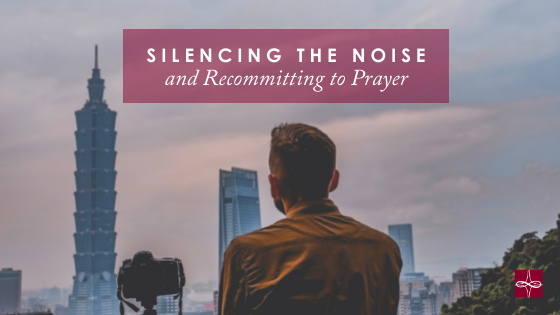

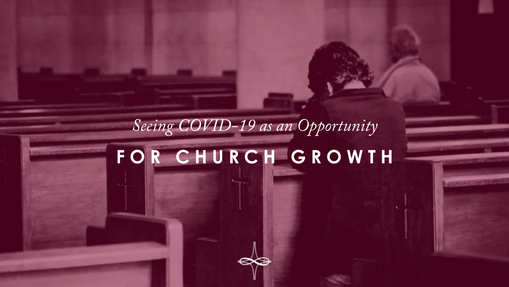
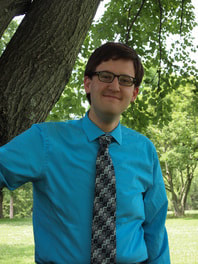
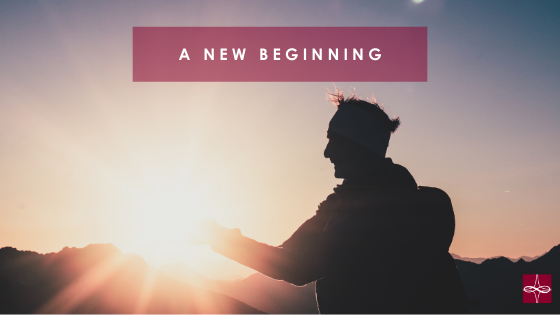


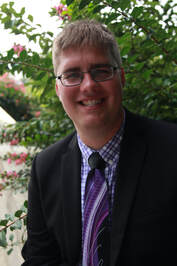


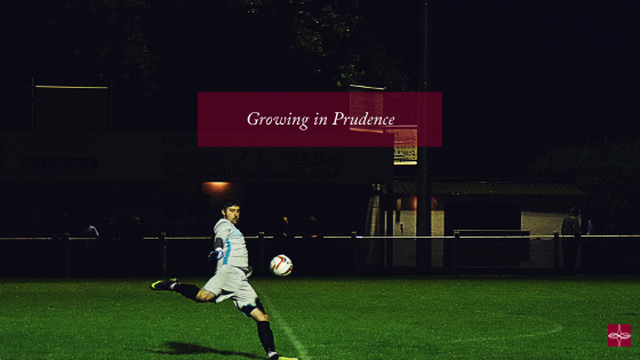


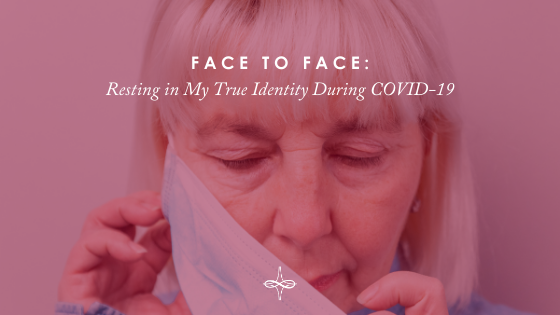

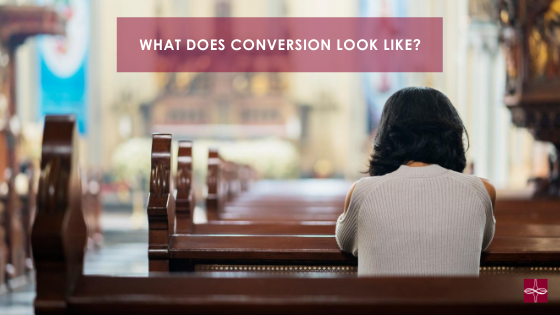


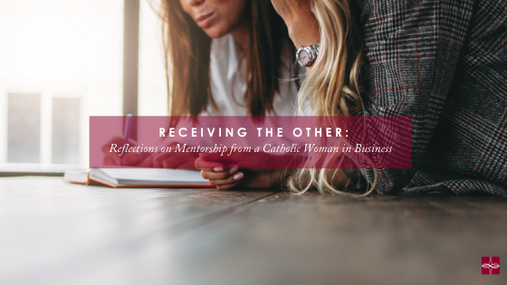

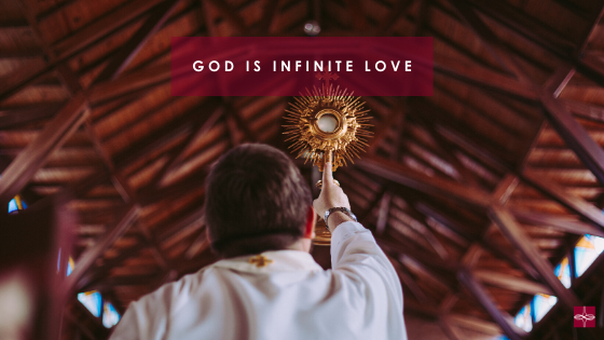



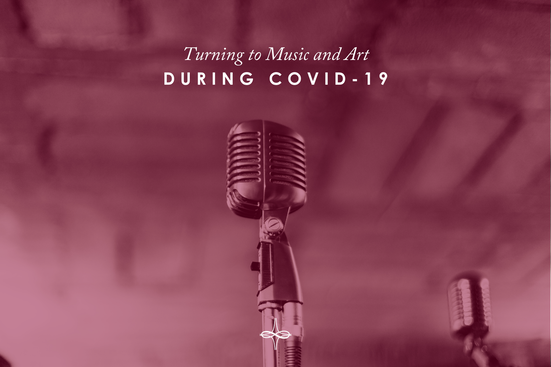

 RSS Feed
RSS Feed